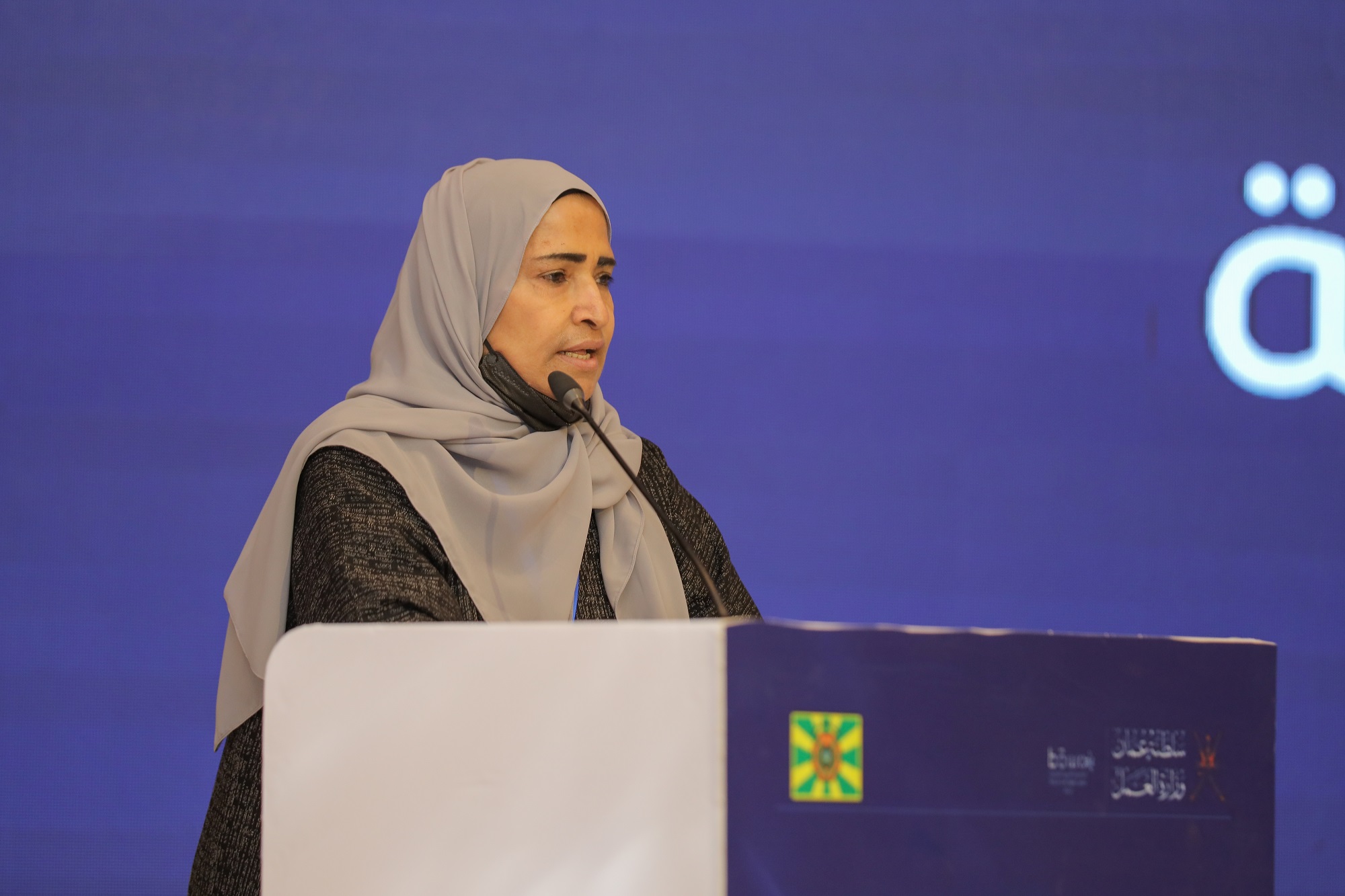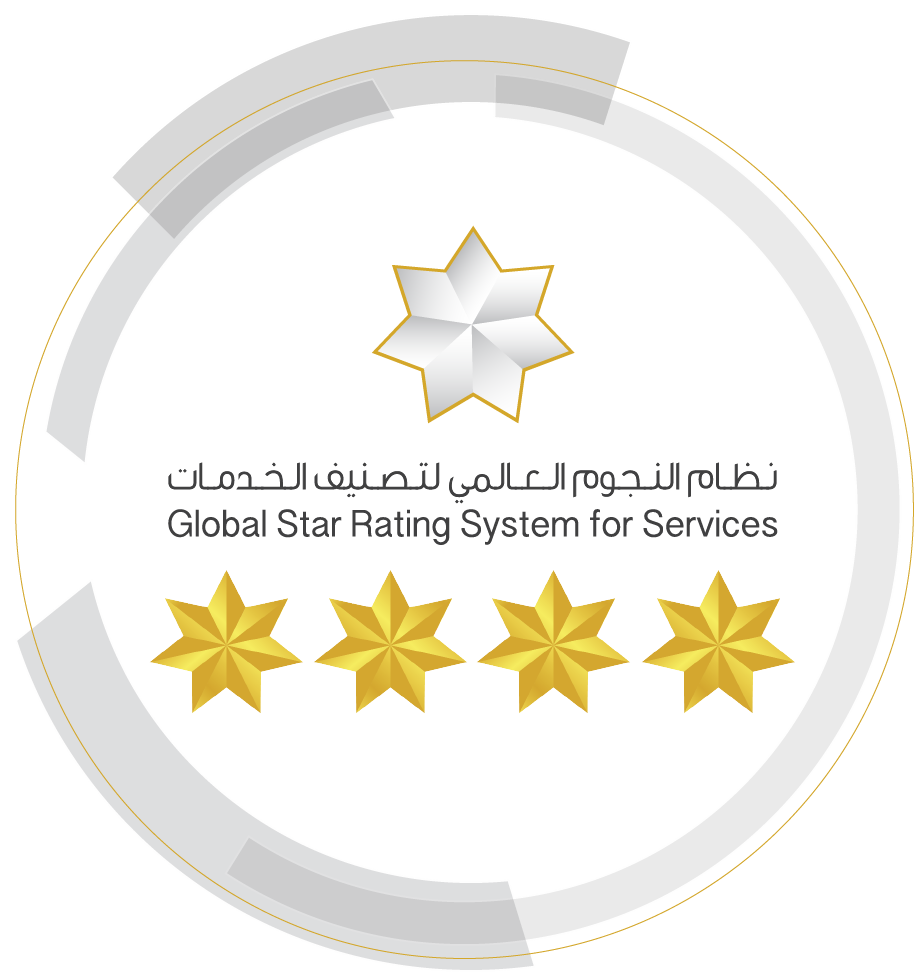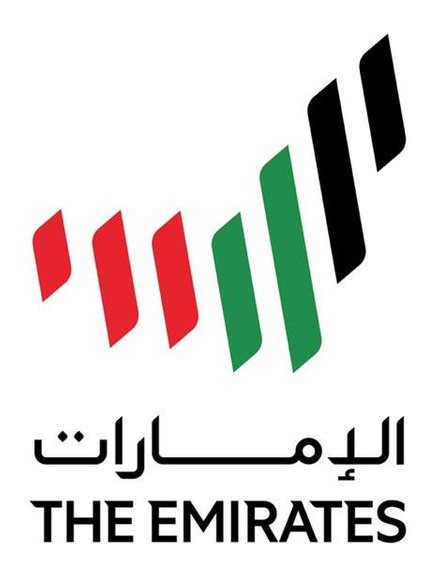Delegation From The Ajbwc Participates In The Working Women's Second Arab Forum In The Sultanate Of Oman
Date: 31/08/2022

A delegation from the Ajman Business Women Council (AJBWC) participated in the activities of the second Arab Forum for Working Women under the theme of “Businesswomen’s Future in Digital Economies”, which was held over two days in the Governorate of Dhofar, and organized by the Ministry of Labour in cooperation with the Arab Labour Organization (ALO). The delegation participating in the Forum activities was headed by Dr. Amna Khalifa Al Ali, Board member of the Ajman Chamber of Commerce and Industry (ACCI) and Chairwoman of the AJBWC, Mona Saqr Al Matrooshi, Wafa Hassan Al Shamsi, Board members of theAJBWC, Abeer Eid Al Faraj, Director of the AJBWC's Office, and Zamzam Al Shehhi, Senior Executive in the AJBWC. Dr. Amna Khalifa stressed the importance of the Forum and its role in enhancing the contributions of Arab women in the private sector and the digital economy. The Forum aims to monitor best practices and possibilities for developing training platforms for the digital economy, providing a platform to diversify channels of support directed to women, raising awareness of the importance of e-commerce, and increasing investment in digital and technological projects. She stated that the AJBWC is keen to intensify its external participation within its strategic plan with a view to increasing the means of support directed to the AJBWC members and entrepreneurs in general by reviewing best practices and upgrading the services, initiatives, and projects implemented by the AJBWC in order to enhance the quality of life and increase the levels of individual and family happiness through diversifying means of economic empowerment. During the Forum's activities, Dr. Amna Khalifa presented a working paper entitled "Women Entrepreneurship in the Digital Economies", as part of the theme of building the capacities of female entrepreneurs, "Digital Education and Training". The Chairperson of the AJBWC stressed that the economy is affected, in general, by many successive variables, including "continuous change, rapid development in all aspects of life as a result of the flow of knowledge, and successive recent discoveries and technology", which directly affects the growth and development of micro-, small, and medium-sized enterprises. She pointed to the importance of the role of educational and training institutions and the need to keep pace with the requirements of economic sector developments and project development, through the development of patterns and means of education and training methods, in addition to benefiting from the capabilities of information and communication technologies (ICT), qualifying students for the modern requirements, developing technical skills through the activation of the e-learning applications, and the development of the training cadres professionally and technically. Dr. Amna Khalifa enumerated the advantages of e-training platforms, including flexibility and the possibility of breaking the barrier of geographical distance and saving time and resources. She also referred during the presentation to the relationship between entrepreneurship and the use of modern technologies in the success of projects and business growth and sustainability. She added, "The Covid-19 pandemic has a major role in transforming national and institutional innovation strategies and accelerating the reliance on modern technologies, praising the efforts of many UAE institutions in supporting the trend towards the use of technology and digital technology in all sectors, especially the economic sector, and enhancing the benefit of entrepreneurs from this orientation". At the conclusion of the working paper, Dr. Amna recommended the need to educate and encourage women to take advantage of the investment opportunities available in the digital economy and to motivate business women councils and women institutions to engage in the organization of digital projects while developing academic programs and scientific and training specializations on e-commerce and digital projects in universities and scientific and training institutes with the aim of preparing a generation of women and girls who are able to innovate, transfer knowledge, and invest in the projects that rely on taking advantage of modern technologies.


